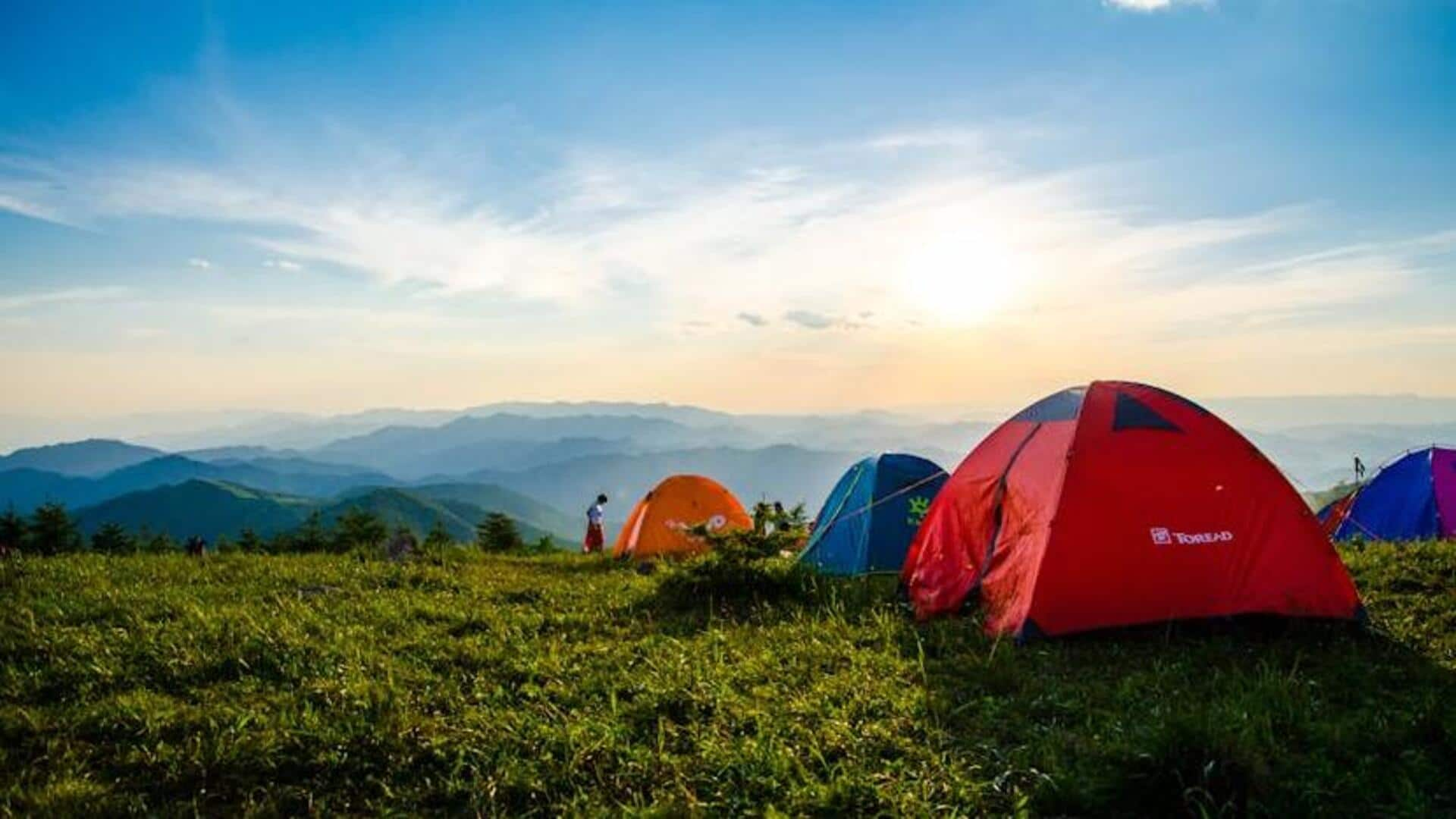
Zero-waste camping: Eco-conscious wilderness adventures
What's the story
Zero-waste camping significantly reduces your environmental impact by eliminating trash production and encouraging sustainable practices. This article provides practical tips for eco-friendly wilderness adventures, emphasizing waste minimization and preservation of natural habitats. By embracing zero-waste principles, you can fully immerse yourself in the beauty of nature while playing a crucial role in preserving it for future generations.
Planning
Plan ahead with reusable supplies
A key to achieving zero-waste camping is thorough planning, particularly when it comes to what you bring. Choosing reusable items like water bottles, cutlery, and plates eliminates the need for wasteful single-use options. High-quality reusable gear not only reduces waste but also saves money over time. Before heading out, double-check that everything necessary is packed and opt for eco-friendly products made from sustainable materials.
Packaging
Minimize packaging waste
Food and supplies packaging is one of the biggest contributors to waste on camping trips. To combat this, purchase food in bulk and repackage it into reusable containers before you leave for your trip. Not only does this minimize packaging waste, but it also helps keep your meals organized. Choosing products with less or recyclable packaging also supports zero-waste goals.
Principles
'Leave No Trace' principles
Following "Leave No Trace" principles is essential in zero-waste camping. These rules focus on respecting wildlife, disposing of waste responsibly, keeping campfire impacts low, and showing consideration for other visitors. Important practices involve packing out all garbage, using biodegradable soap for washing, and avoiding disruption of natural habitats. Adhering to these principles helps campers maintain the pristine nature of the wilderness.
Composting
Composting organic waste
Unlike most non-organic waste, which should be packed out, composting provides a responsible way to dispose of organic materials like fruit peels or vegetable scraps. If your campsite has designated composting facilities, use them! Just remember to separate your organic waste from non-compostables. For backcountry camping without facilities, learn how to properly bury organic waste. It should be done well away from water sources to avoid contamination.
Education
Educate others on sustainable practices
Spreading awareness about zero-waste practices is key to fostering eco-consciousness within the camping community. Whether on social media or in person during your trips, sharing knowledge about minimizing environmental impact encourages a sense of collective responsibility towards nature conservation. Conversations about sustainable gear choices or waste reduction strategies can motivate fellow campers to embrace greener habits.